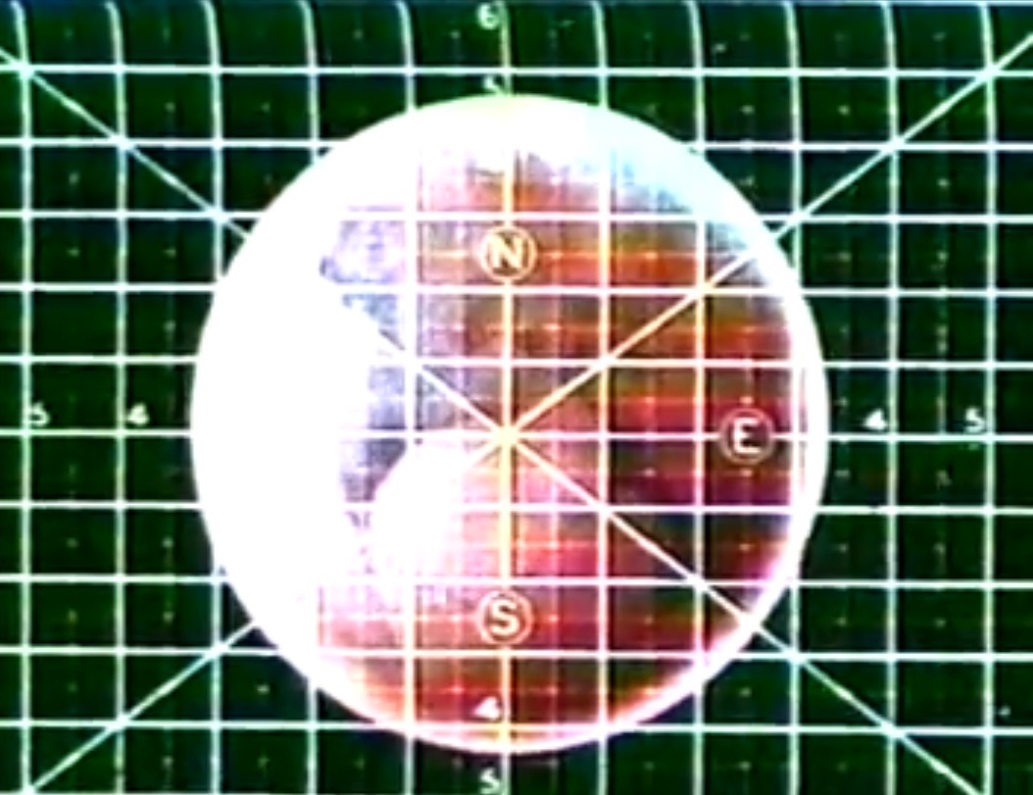Horrors
of the Red Planet

Mars Probe 1 on a
mapmaking expedition crash-lands, the astronauts journey by raft along a canal
and through fog into a vast underground cavern. “We hadda go to
Mars, we couldn’t go to the Moon like everybody
else!”
Leaving the labyrinthine
volcanic chambers, they find the Martian desert and an earlier unmanned
spacecraft. In the sands, a riddle of stone... “Whatever
it is, I’m glad it’s dead.”
“There must
be an entire civilization entombed here.” The Wizard of Mars, for so it is called,
addresses them, “a composite being... many minds... last city... there
have been others here before you... their motive was greed...”
The mystery of time. “Our city was
plucked out of time—yours is the task, to replace the sphere within the
mechanism.”
A direct
reflection of Levin’s Journey to
the Center of the Earth and Haskin’s Robinson Crusoe on Mars and Juran’s First Men in the Moon, directly reflected in Roddenberry’s Star Trek series and Altman’s Countdown and Kubrick’s 2001: A Space Odyssey (cf. also Medak’s
Species II for the interrupted
voyage).
TV Guide,
“in
his dotage, despite his painful arthritis, charismatic actor Carradine lent his
considerable talents to many such silly scripts and low-budget independent
productions.” Fred Beldin (All Movie Guide), “nothing makes
any sense.”
Journey
to the Center of Time
“A balance
between these two great universal forces, the past and the future, and
then...”
The space-time
continuum. Resnais’ Je t’aime Je t’aime is roughly contemporaneous.
Five thousand years
on, in a trice. Not on the beam-ends of transmitted light-years as a viewer in
space, but physically through a “time warp”. This immediately
follows a moonlight romance between a lady scientist and a male colleague at
the Institute for Temporal Research, he is not interested in this sort of
thing, and then...
A rocket
vertically poised amid an evident war, that is where things stand, beyond the
pale as it were. Dr. Vina
presides in the council chambers aboard a starship, “as interested in
asking you questions as you are in having yours answered.”
Alien colonizers. “This is still Earth.
The year is 6968. But yours is a dying world.” The laser weapon of the
future must be resisted, the rocket topples over in flames. Back
through World War II, the Civil War, Injun fighting, pirates on the main, swordfighting, spear and shield, “two
millennia...”
“One
million years!”
“B.C.” Two leave the lab, a tremendous saurian appears. “A division of Stanton Industries”. The office romance.
This is
comparable, and not only on the point of its abstruseness, to Rod
Serling’s “The Odyssey of Flight 33” (dir. Justus Addiss) for
The Twilight Zone.
“... the
Adam and Eve of a brave new world.”
Gallery
of Horror
A divination of
cuckoldry down through the ages, as it were.
|
Women and men together all in a seaquick
temper tick the cabin clock. |
The thief of time
then appears, like clockwork, and in permutations dramatically conveyed, each
introduced by John Carradine in white tie. The Whistler on the radio is certainly
invoked. At the same time Rod Serling’s Night Gallery on television is evidently
foreseen. “Say, uh, I’ve got an
idea.”
“What’s
that, Cushing?” Corman’s The Terror supplies incidental trappings. A tale of witches and burnings, of the secret power behind
the throne, return of the cuckold, and again the return, finally Count Alucard
and Carfax Abbey. “My
family came with the conquering hordes of Attila the Hun,” they were not
always in Transylvania, Count Alucard explains. The
ending is rather like “Will the Real Martian Please Stand Up?” on The Twilight Zone (dir. Montgomery
Pittman).
Excellent score,
unattributed. The actors, except Lon Chaney as Dr. Mendell, sound quite like the great doubles at Titanus.
Abbott & Costello Meet Frankenstein (dir. Charles Barton) is famously recalled as
well, at the end.